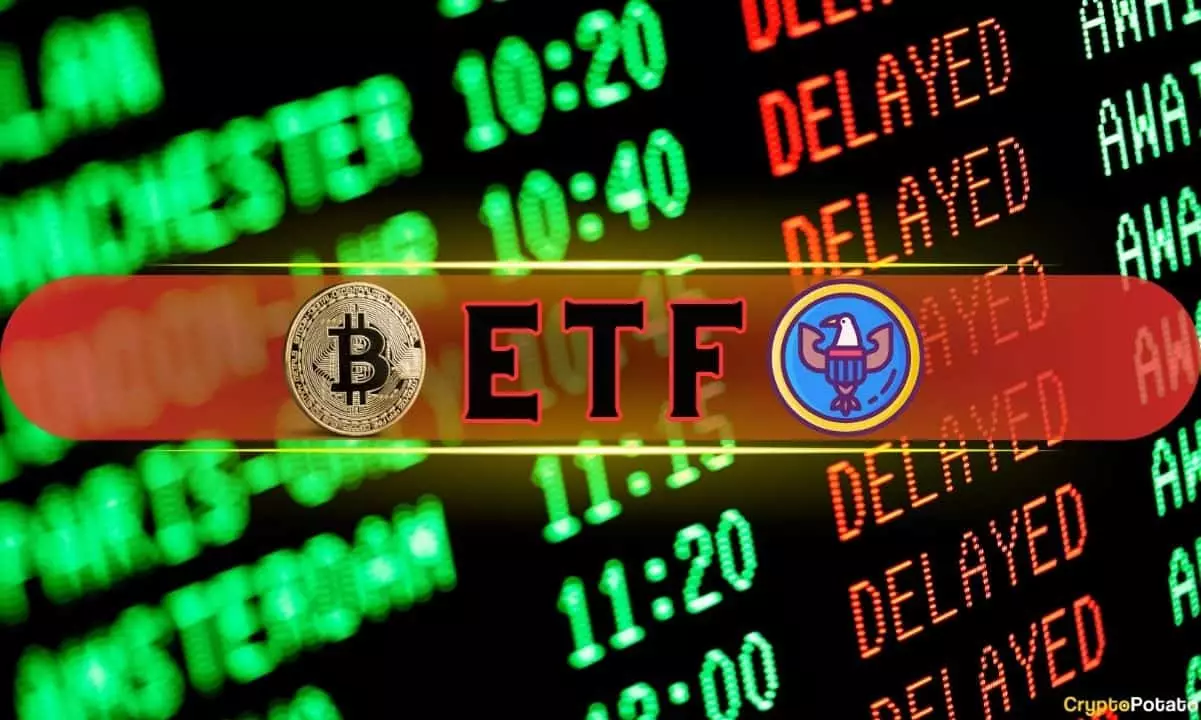The SEC’s prolonged hesitation on approving Bitcoin ETFs, especially ones associated with high-profile figures like Trump Media, is more than just bureaucratic sluggishness—it’s a clear signal of uncertainty that undercuts investor confidence. While some may see this as cautious oversight, it’s impossible not to interpret such extended delays as a cautious, if not irresponsible, approach to a rapidly evolving market. When a regulatory body stalls its decision, chaos often follows—markets become volatile, speculation runs rampant, and genuine investor interests can be sidelined by political and bureaucratic gymnastics. Especially troubling is the potential for this hesitancy to stifle innovation and deter the development of more sophisticated financial products that could bring broader access to crypto assets.
The SEC’s extended review process leaves traders in limbo, fostering an environment where speculation and misinformation thrive. Rather than providing clarity, these delays sow confusion, leading to wild swings in crypto prices—an outcome contrary to the stability that well-regulated markets are supposed to promote. This stalling not only risks undermining America’s credibility as a forward-looking financial hub but also incentivizes clever jurisdictions abroad to seize the moment and attract crypto firms seeking a friendlier regulatory climate.
Political Influence and Its Impact on Crypto Regulation
The decision to delay Truth Social’s Bitcoin ETF review must be viewed through a political lens. The Biden administration’s regulatory stance has historically leaned toward cautious and sometimes skeptical oversight of crypto innovations. However, with the Trump-backed media group seeking approval, the political influence becomes more conspicuous. The administration’s apparent reluctance to grant a green light yet invites speculation that the decision is less about regulatory rigor and more about political optics.
While one could argue that regulators should prioritize investor protection, it is undeniable that political motives tend to influence the timing and nature of decisions. The appointment of new leadership under the Trump administration, explicitly mentioned as a factor, signals potential shifts in the regulatory landscape—more sympathetic to the crypto industry’s needs. This is both an opportunity and a risk. A more pragmatic approach might usher in a wave of innovation, but the risk remains that political favoritism could skew the regulatory process, diminishing the fairness and transparency essential for a healthy market environment.
What Do Delays Mean for the Future of Crypto Investment?
The broader picture reveals a complex dance between cautious regulation and the urgent need for financial innovation. Many industry insiders believe that these delays are a defensive tactic by regulators wary of the disruptive power of digital assets. Yet, the reality is that delaying crucial decisions can also serve the interests of established financial institutions that prefer to see regulation lag behind innovation, effectively giving them a monopoly on crypto exposure.
Investors eager to diversify and capitalize on the burgeoning crypto economy are left in a state of uncertainty. The wave of pending applications—from industry giants like BlackRock to niche players such as 21Shares—highlights the pent-up demand for more integrated crypto products. However, without timely approvals, the market risks losing momentum, pushing capital overseas and fueling the growth of unregulated platforms.
Moreover, the hesitation could be interpreted as a de facto rejection of cryptocurrencies’ legitimacy as mainstream assets, further entrenching skepticism about their role in a balanced portfolio. A truly resilient financial future demands decisive leadership—something that is currently missing as the SEC’s review process turns into a protracted game of bureaucratic chess.
The Irony of Democratic Principles Underlying Market Oversight
At the core, securities regulation is supposed to serve the public interest—promoting transparency, protecting investors, and fostering innovation. Yet, the SEC’s current stance reveals a fundamental irony: by delaying or denying legitimate crypto ETF applications, it may be undermining the very principles it claims to uphold. Slow decision-making and selective approval processes threaten to favor entrenched interests over disruptive yet safe innovations.
A more balanced and pragmatic approach would recognize that regulatory oversight, when applied judiciously, can serve as a catalyst rather than a barrier. Encouraging transparency, establishing clear standards, and providing timely guidance would build investor trust and legitimize the crypto industry’s potential. By dragging its feet, the SEC risks becoming an obstacle rather than an enabler—stifling innovation, fostering uncertainty, and inadvertently encouraging the growth of opaque, unregulated markets.
If the aim truly is to integrate crypto into the traditional financial system responsibly, then agency leadership must prioritize pragmatic, transparent decision-making over prolonged delays. Only then can the promise of digital assets be realized in a way that benefits both investors and the broader economy.

